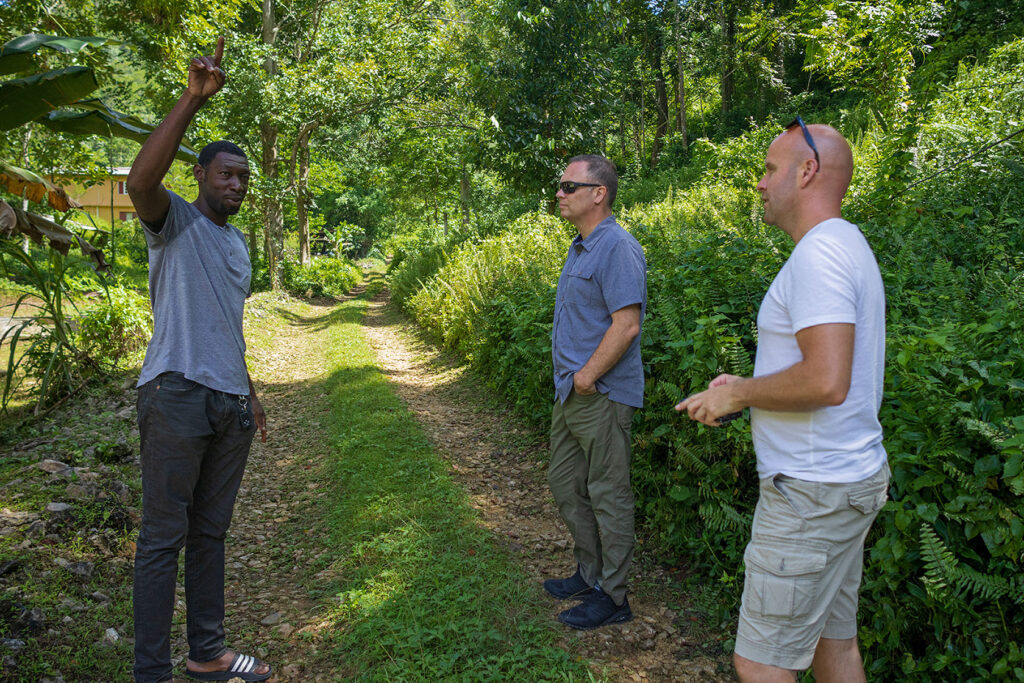I love missionaries. As the president of a missions agency, I have a passion to send and serve those who go out on mission “for the sake of the name” (3 John 7).
I also have this deep love for missionaries despite the many bad experiences I’ve had with some of them during my time in pastoral ministry. Regrettably, I confess that I have been used, deceived, given the silent treatment, yelled at, given a sales pitch—even stolen from—by professing Christian missionaries.
Drawing upon my own experiences in local church ministry, it is my encouragement that pre-field missionaries consider what not to do when raising funds. If you are the type of missionary who falls prey to these common mistakes, chances are that you are the type of missionary with whom we would not partner. Avoiding these 11 pitfalls will communicate maturity, value, and integrity to the pastors and church leaders you engage as you build a support base and prepare for cross-cultural ministry.
1. Treat raising support “unspiritual.”
We often use catchphrases like “fundraising,” “support raising”, “donor”, and “giving units.” We send out missionary support letters, donor receipts, year-end reports, and a whole host of other missions-specific “technical terms.” This doesn’t sound very spiritual, does it?
But it is.
Fundraising is actually a deeply spiritual enterprise. And if you pursue support partnerships in a manner that is unspiritual, you will only bear unspiritual fruit.
Instead, pursue Christ, walk in the Spirit, and love God with all of your heart. Trust him as the source of your personal and ministry provision (Matt. 6:33).
Cultivating a partnership with a local church is spiritual business. Raising support does not per se make you a sleazy salesman. The local church is Christ’s very body, after all—church members want to support God’s mission worldwide because God has put it on their hearts to do so. Let your deep and growing relationship with God be manifest in your attitude towards the support-raising process.
2. Make every church visit a fundraising event.
Rather than planting fundraising seeds at every visit, plant gospel seeds instead. Every visit and contact are opportunities for you to support the mission of Christ and his church. Do for the church today what you will do on the field tomorrow.
In other words, do ministry. Give warm welcomes. Greet the lonely. Seek the lost. If you go to a church and begin reaching out to people in their local community, people will see your giftedness in action and affirm your qualifications to minister cross-culturally.
This will require homework on your part, as you will need to choose churches that are compatible with your ministry values and not just your fundraising goals. But the long-term fruit of real investment in the churches you visit will be worth it.
3. Talk to a pastor from a script.
Know exactly what you need to say and how you are going to say it, but do not read from a script.
From a real pastor, here’s the real truth: We. Can. Tell.
The Apostle Paul exemplifies the kind of authenticity missionaries need. In regard to his readers’ assessment of his ministry credentials, Paul insisted that they not “go beyond what is written” (1 Cor. 4:6). Instead, he states, “But by the grace of God I am what I am” (1 Cor. 15:10). Paul didn’t oversell himself. Missionaries building relationships with pastors should follow his example.
Even the most caring person in the world will tune you out if you read them the same canned speech you prepare for every potential donor. Start a relationship instead. Remove the bare idea of “fundraising” from your mind and replace it with genuine interest in the pastors and members of the church to whom you present. Ask insightful questions, and listen carefully to their answers. Often pastors are lonely and need someone to confide in. Listen, encourage, and pray with and for pastors. Learn about their families, jobs, passions, and hobbies. Then, help them understand the roles your ministry has that fit their passions and giftings.
Purposeful, gospel-oriented relationship-building is often laden with spiritual fruit.
4. Think only about what churches can do for you.
Don’t do this. Churches will pick up on it right away if you are merely seeking to milk the church for funds.
The Apostle Paul always prioritized the responsibility of relationship over the possibility of financial partnership. He begins his letter to the Romans this way: “I long to see you so that I may impart to you some spiritual gift to make you strong” (Rom. 1:11). He does the same with the Thessalonians: “…we endeavored the more eagerly and with great desire to see you face to face” (1 Thess. 2:17). And again, with the Ephesians: “I do not cease to give thanks for you, remembering you in my prayers” (Eph. 1:16).
What’s the takeaway? Paul knows the importance of relationship, and he doesn’t run roughshod over personal connections in order to get to the ask. Such a self-centered mentality wholly ignores the theological reality that missionaries exist for the church—or the other way around.
The missionary is only one part of the body of Christ. When individual missionaries slip into thinking only about what churches can do to bolster their ministries or accounts, the fruit we yield will be sour and rotten—if we yield any at all. Center your prayers on how you can serve the church instead:
Lord, how can your calling on my life help this church?
Lord, how might you use me today?
Lord, help me to bless your people.
With this foundation, when it does come time to discuss funding, you will feel at peace knowing the relationship is established on mutual care, concern, and trust.
5. View missions committees as obstacles to overcome.
Rather than embracing this cynical, adversarial perspective, realize that missions teams, departments, and committees perform vital functions within the local church. They are potential conduits for divine opportunity—not mere obstacles to your agenda. They are not God’s “B” team for missions (you, the missionary, being the “A” team)—to the contrary, God has given them a sacred task of overseeing your ministry partnership. “Now you are the body of Christ, and each one of you is a part of it” (1 Cor. 12:27).
Think instead of ways to help them do their job. Such church groups are almost certainly composed of volunteers, so be appreciative of the fact that they are sacrificing their limited time to talk with you. And look for ways to return the kindness.
6. Cold-call a senior pastor.
Here is a real-life scenario: A pastor is preparing to meet with a couple for marriage counseling in 15 minutes. The phone rings. It is a missionary cold-calling him. He has no idea who they are, how they got his number, and—most of all—they clearly do not even know who he is. What does the pastor do?
Obviously, that call won’t go well.
Prime the pump instead when it comes to building partnerships. Finding a touchpoint of commonality with pastors is critical, and allowing a partnership to grow out of a credible relationship is equally important. When you first meet the pastor, he needs to know that you are of the same “tribe.”
Visit on a Sunday. Send information on your ministry. Talk to a church member. Call the church office several times and get to know the staff. If they are close, stop by with a treat, and participate in a ministry. But: Do. Not. Cold call.
7. Avoid actually attending the church unless you absolutely have to.
Instead: If and when you have a free Sunday, visit.
All healthy pastors enjoy having visitors. Your presence sends a positive message to any mission team or church leader. As a pastor, I was unlikely to take a meeting with a local missionary who had never attended my church and had no inclination to do so. Why did they think would my church would be a good partnership fit?
Recruit partners the way Jesus recruited followers: face-to-face, eye-to-eye, voice-to-voice.
8. Neglect follow-up.
Instead of skipping the follow-up call out of convenience, invite true reciprocity. Generosity breeds generosity. You learned this concept when you learned the golden rule; if you want a church to support you, support them. Give exactly how you want the church to give—joyfully, early, often, and unexpectedly.
Partnerships do not blossom from one phone call or meeting. They take relational investment. Pick the churches in which you desire to make an impact, and make sure you support them in helpful ways. See if God will not use your generosity to spur theirs.
9. Appear apologetic (or lack zeal) when meeting with churches.
No one is attracted to leaders without passion and vision. But if such zeal naturally pours out of you, people will naturally seek to partner and serve alongside you. “Be steadfast, immovable, always abounding in the work of the Lord” (1 Cor. 15:58).
I met with a missionary that began her conversation with me this way: “I’m sure you get a lot of missionaries calling you. I apologize if I am a bother.” I appreciated her sentiment and sensitivity, but pastors and church mission teams would much rather hear from missionaries with burdens so clear and bold that they feel compelled to get with the agenda! Be careful not to apologize unnecessarily or proactively answer “no” for your potential supporters.
Bring godly, humble confidence to your support raising endeavors. Let the conviction that God placed on your heart shine through when you are given an organic opportunity to build a partnership with a pastor.
10. Waffle on your goals and mission.
Missionaries who are afraid to articulate clear ministry goals will not receive the trust of church leaders. James writes that “a double-minded man is unstable in all his ways” (James 1:8). When presenting your ministry goals, be clear, concise and consistent:
Clear as to where you are going and how you are going to reach the lost while there.
Concise in that, if you cannot summarize your work in 30 seconds, you are not ready to partner with churches.
Consistent by repeating what you are doing and how the church can partner over and over in the conversation.
11. Talk exclusively in terms of need.
The bare existence of your needs does not motivate anyone. Instead, present opportunities for spiritual impact.
The best conversations I have had with missionaries began with how my church could make a global impact.
Remember: missions is not about you. It’s about God doing a work. So in your presentation, answer the question every church is asking: “How can we be involved in something special that God is doing?”
Conclusion
As you raise funds for your mission, seek to ground everything in a personal relationship—like Edward.
The first night Edward visited our church, he attended our prayer meeting. Consequently, my first interaction with him was when I heard him pray for the lost with tears in his eyes. Within weeks, our families were enjoying a meal together. His wife connected personally with mine while he was connecting with me through ministry involvement.
By the time he asked us to consider partnering with their family financially, our leadership team had already discussed it. It was a natural next step and a part of the overflow of our growing relationship.
Although missions requires entrepreneurial skills, you are not strictly an entrepreneur, and churches are not widgets in the assembly line of your mission. If you can recognize this from the outset, you will not only be more successful in raising funds—you will also enjoy deeper, richer partnerships when you deploy and when, someday, you return.




